One year after the war in Gaza began, women and girls continue to pay the highest price
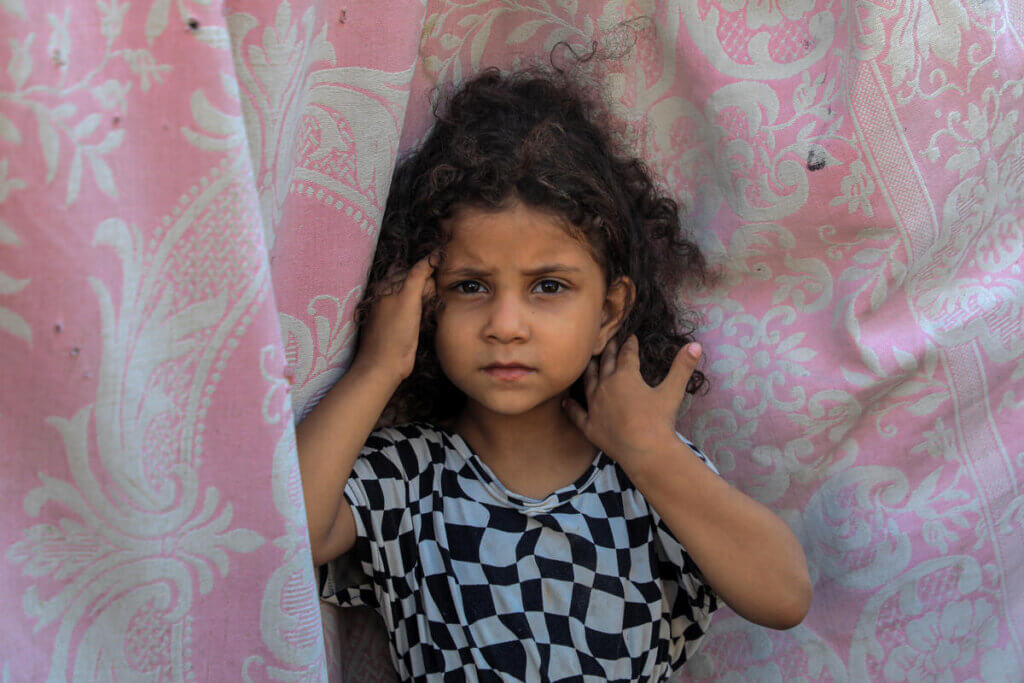
“Hell on Earth”
A year has passed since war erupted in Gaza, sparked by a Hamas-led attack on Israel on October 7, 2023 that killed more than 1,200 people and led to the abduction of 251 men, women and children. In the year since, the people of Gaza have endured horrific suffering – with women and girls disproportionately bearing harm.
Twelve months of relentless bombings have killed more than 41,600 people and injured 96,000. Intergenerational homes have been destroyed, forcing 1.9 million people (90% of the overall population) to be displaced – including 43,580 pregnant women who cannot flee on short notice. Many families have been displaced multiple times over, constantly forced to pick up and move to more and more cramped locations that are categorized by “lakes of sewage, piles of trash and mountains of rubble”.
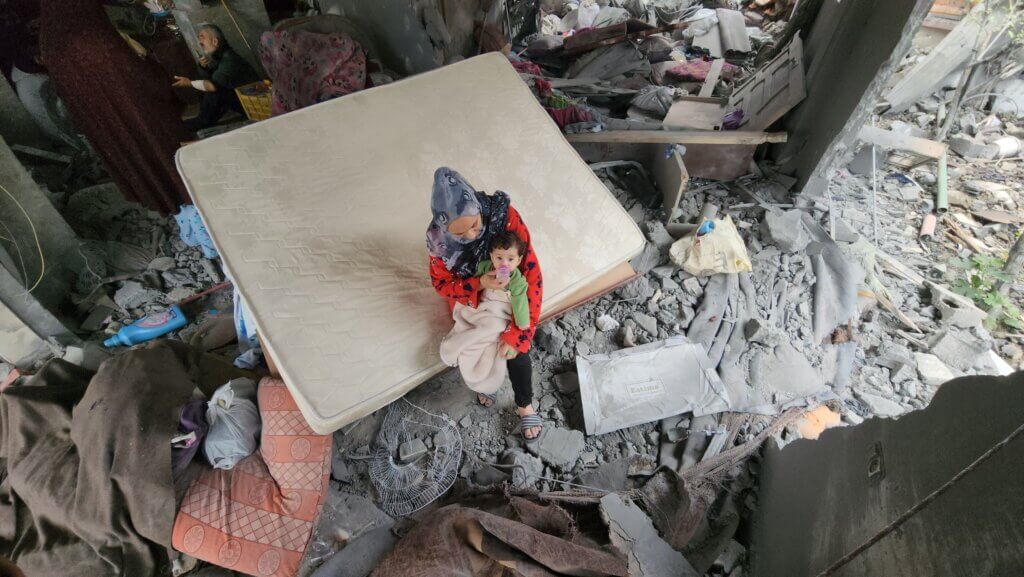
But the trauma does not end there. The healthcare system in Gaza has endured significant hits from the airstrikes, rendering 19 out of the 36 hospitals completely out of service and forcing the 17 that remain partially operational to be completely overwhelmed with patients and dangerously low on supplies. This health system collapse has created “hell on Earth” for millions – including the thousands of pregnant women, newborns, and new mothers who cannot access critical care. Now, Gaza is facing a significant uptick in miscarriages and maternal deaths, both increasing by 300%.
Hunger is also a significant concern, with 96% of the population now facing critical levels of hunger in Gaza. Of that number includes 46,300 pregnant women, who are experiencing crisis to catastrophic levels of hunger. More than 17,000 pregnant women in Gaza are now a step from famine, and 11,000 pregnant women are actively enduring famine.
The last twelve months have brought one of the worst humanitarian crises of our time to the people of Gaza – and now, the violence is spreading across the region. Right now, Palestinians in West Bank and East Jerusalem are experiencing an escalation in violence, and airstrikes in Lebanon and Syria have led to more than 1 million people being displaced.
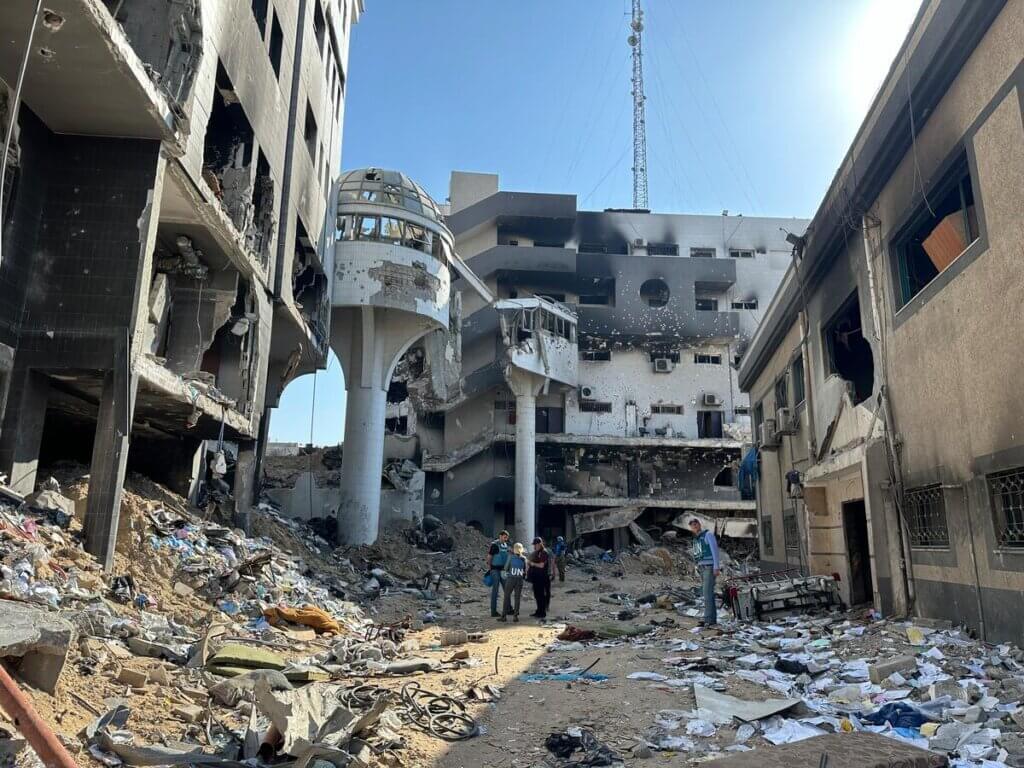
“The sound of the rockets and bombs was louder than my happiness.”
Ala’a is one of the estimated 155,000 pregnant women and new mothers in Gaza in the past year who have been forced to give birth under fire, in tents, while fleeing bombs, and often without access to medication or clean water. She found out she was pregnant with her son in November 2023, one month into the war. She wrote us a letter detailing her experience of being pregnant and giving birth in Gaza.
These are her words:
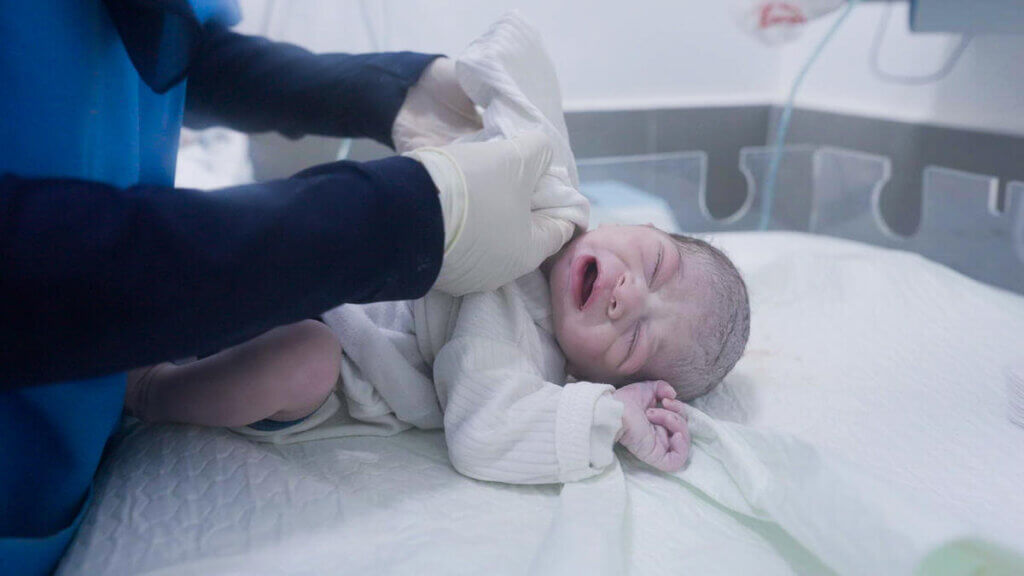
‘‘This story doesn’t start from day one. It starts from nine months ago – the day I learned I was going to be a mother.
The sound of the rockets and bombs was louder than my happiness, but I decided that with my little baby we would overcome all difficulties.
After seven months, I was forced to leave my home and live in a tent. I cried a lot, feeling that my brave baby would never see the walls of his room that I had always dreamed of preparing for him.
50 days later I fled again under fire, running, screaming and crying because of the bombs. At that moment, I feared I might lose my baby.
We are here, starting from nothing – no shelter, no home, not even destiny. We built a tent again, and we promised each other again that we must survive, whatever happens.
July 13, 2024: A pain I couldn’t bear, something strange is happening. I went to the hospital at 2 a.m. for a checkup, and all the midwives were ready. But they told me there was no way for a natural birth. It was too dangerous for me and my baby.
We went off to surgery, and in a few minutes, they prepared everything for me. Finally, “I am here, mummy. Hello to this evil world from me, Mohammad.”
That’s my baby. He’s here.
It was the best decision to come here to give birth. The midwives, during their shifts, were so nice and warm. They took care of every single thing. I like that they smile all the time even though they are under pressure. They are a great team.
From Mohammad, the son of Ala’a, thanks for everything. We are grateful for you.
I hope that we meet again in better times.
– Ala’a”
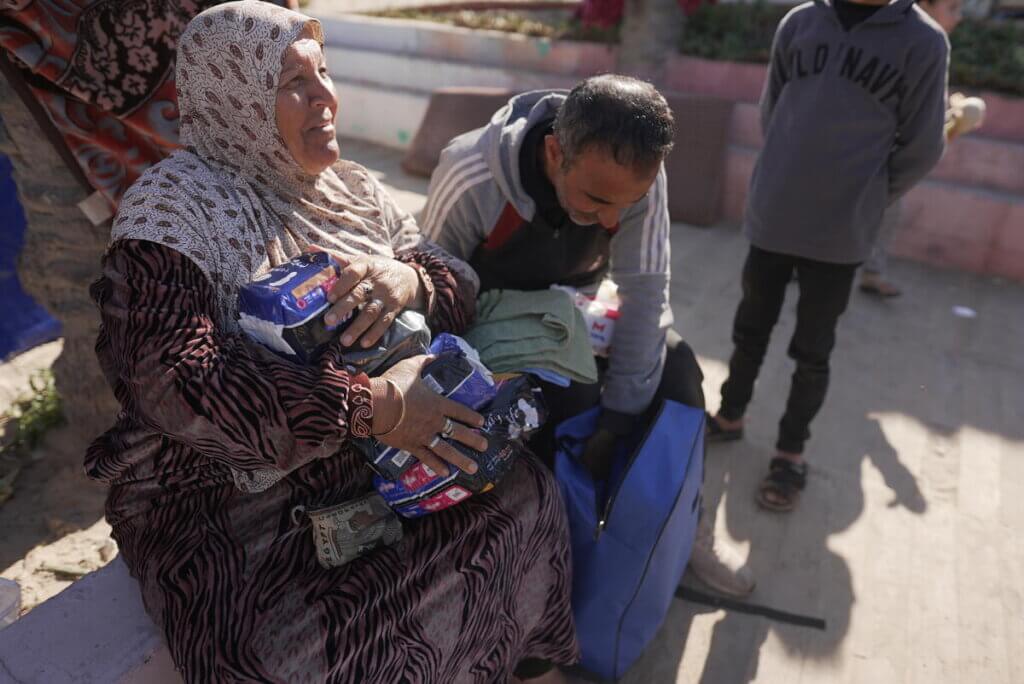
“Thank you for your credibility and honesty.”
Thanks to your support and the support of thousands of others who have been moved to action by the atrocities women and girls are surviving in Gaza, we are able to be there for women like Ala’a. We safely delivered her baby – just as we have helped deliver half of all babies in Gaza in the last year. But the power of your donation does not stop there. Together in the last twelve months, we have been able to:
– Establish 6 mobile maternal health units
– Deploy 29 teams of sexual and reproductive health workers offering prenatal and postnatal care to pregnant and breastfeeding women
– Train and deploy 55 community midwives
– Distribute 134,000+ Dignity Kits, Reproductive Health Kits, and Mama Kits
– Establish 6 safe spaces in the Gaza Strip for women and girls at risk of violence against women
For hundreds of thousands of women and girls, we have made all the difference. Thank you for being with us every step of the way for the last twelve months. We continue to echo the UN Secretary-General’s call for an immediate humanitarian ceasefire, for the immediate and unconditional release of hostages by Hamas, and for the delivery of sustained humanitarian relief at scale that meets the needs of the people of Gaza.